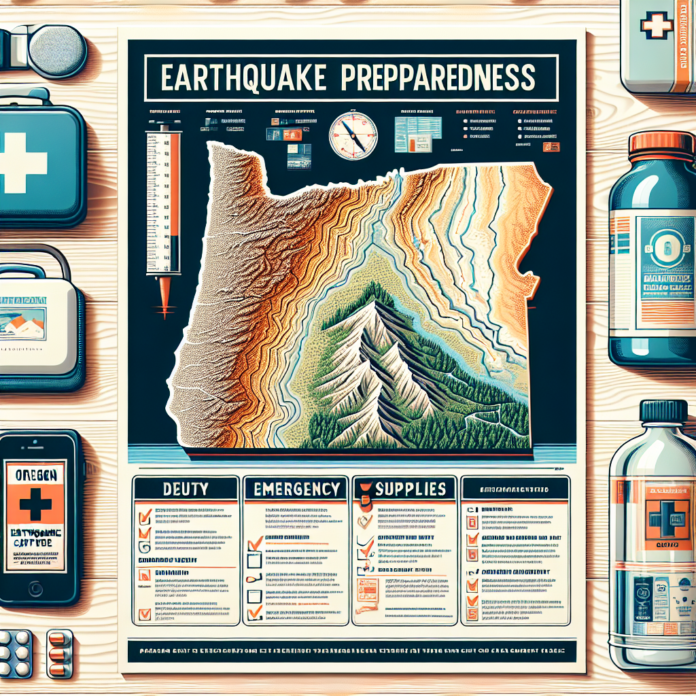Essential Actions During a Disaster: Key Information for Facing a Major Earthquake in Oregon
The Register-Guard
Preparing for an Earthquake in Oregon: Essential Guidelines
As residents of Oregon, it’s crucial to be prepared for the possibility of a significant earthquake. The Pacific Northwest is susceptible to seismic activity due to its position along the Cascadia Subduction Zone. Here’s a comprehensive guide on how to prepare for an earthquake and what to do when one strikes.
Understanding Earthquake Risks
Oregon is part of a seismically active region, with the potential for earthquakes that could cause widespread damage. The Cascadia Subduction Zone is capable of producing massive quakes, similar to the 2011 Tōhoku earthquake in Japan. Being informed about these risks helps in taking proactive measures for safety.
Creating a Disaster Preparedness Plan
1. **Develop a Communication Strategy**
Ensure all family members know how to contact each other during a disaster. Designate an out-of-state contact who can facilitate communication between separated family members.
2. **Assemble an Emergency Kit**
Prepare a disaster supply kit with essentials such as water, non-perishable food, a flashlight, batteries, a first-aid kit, medications, and important documents. Keep this kit in an easily accessible location.
3. **Secure Your Home**
Identify potential hazards in your home and secure heavy items that could fall during an earthquake. Consider retrofitting your home if it’s an older structure to withstand seismic activity better.
During the Earthquake
1. **Drop, Cover, and Hold On**
If you’re indoors, immediately drop to your hands and knees to prevent being knocked over. Cover your head and neck under sturdy furniture, and hold on until the shaking stops.
2. **Stay Indoors**
Avoid running outside during the shaking, as the greatest danger is from debris falling from buildings. If you’re in bed, stay there and cover your head with a pillow.
3. **If Outdoors**
Move to an open area away from buildings, streetlights, and utility wires. Once in the open, drop to the ground and protect your head and neck.
After the Earthquake
1. **Check for Injuries and Damage**
Once the shaking stops, check yourself and others for injuries. Provide first aid if necessary and be prepared for aftershocks.
2. **Inspect Your Home**
Look for gas leaks, water damage, and structural issues. If you smell gas, open a window and leave the building immediately. Turn off utilities if safe to do so.
3. **Stay Informed**
Use a battery-operated radio to listen for emergency updates and instructions from authorities. Follow their guidance and avoid using the phone except for emergencies.
Community Preparedness and Resources
Engage with your community to improve preparedness collectively. Attend local disaster preparedness workshops and collaborate with neighbors to develop a neighborhood emergency plan. Familiarize yourself with local emergency services and resources available for post-disaster recovery.
By being well-prepared and informed, you can significantly increase your safety and resilience in the face of an earthquake in Oregon. Prioritize these steps to safeguard your family and community.


